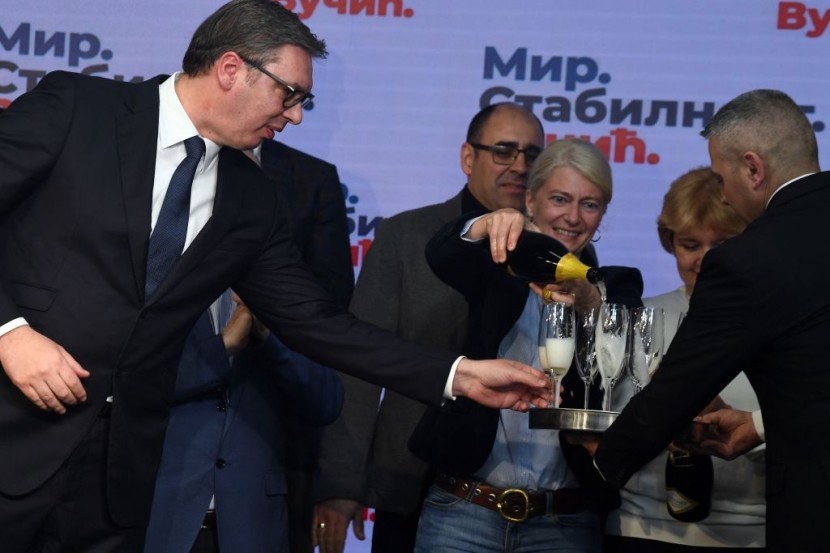
European Union Expansion is hampered by the newly elected leaders of Serbia and Hungary, who are leaning toward the Russian federation but are still in keeping with the bloc.
Most bloc members are supposed to support what Brussels, particularly, has in mind for its political agenda.One objective of expanding and co-opting former eastern bloc members is to intentionally isolate Russian according to US and NATO interests in particular.
Presidential Elections in Serbia, Hungary
Serbian President Aleksandar Vui swept a landslide victory, just as Hungary's right-wing Prime Minister Viktor Orban was elected by an overwhelming majority of Hungarians, much to the Dismay of the EU, reported the Express UK.
The EU will have more trouble pushing the western agenda connected to the Ukraine war with pro-Vladimir Putin groups not okay with the bloc's stand.
Winning with 60 percent in Serbia, Vučić has a mandate that cannot be denied in Sunday's presidential election, cited NPR.
According to a near-complete tally by state election authorities, his Serbian Progressive Party (SNS) garnered 43 percent of the votes in parliamentary elections. Opposition to the elected Serbian leader, United Serbia, was ripped apart in the polls with only 13 percent of the total ballots.
Compared to the triumphant SNS candidate, the opposition party candidate Zdravko Ponoš did not capture voters and got a measly 17 percent of the total vote.
One of the promises by the elected leader during elections is to maintain Belgrade's relationship with the Kremlin, even amid the Ukraine war. Refuse to be part of a European Union expansion that is only for western interests.
Though still in EU membership negotiations, the other members of the EU will not like one member supporting Russia while it's trying to sanction Russia into the ground.
Serbian loyalty to the Kremlin in the east is not conducive to the stand of anti-Moscow members who want a 100 percent consensus.
Belgrade has entered agreements with China in the steel industry, which Brussel's leaders are not happy with due to the unnecessary influence wielded by China should the country gain full member status.
EU Gets More Divided
Though still not fully inducted into the bloc, Serbia has been resistant to join others in actively sanctioning Russian President Vladimir Putin because they have a divergent view.
One more stumbling bloc to getting a whole consensus among full EU members is the victory of Viktor Orban, who is hostile to what he sees as unjust sanctions. His win on Sunday will not make Brussel's too pleased for its agenda.
Despite what the EU and US have done to portray Putin, Orban has dismissed everything else but expressed support for Moscow, even calling the bloc's energy policy flawed. An extension of the Hungarian leader's administration has been a roadblock for the EU and has not managed to win its confidence.
Volodymyr Zelensky's rants against Hungary for not supporting Kyiv's plight only got a terse response from the Hungarian leader, noted Axios. He does not support the claims of the alleged killing of civilians pushed by NATO. Orban is at odds with the woke leaders of the EU who are concerned about gender; that is not acceptable.
The EU frowns on what they see as a preference for Putin and the former US President Donald Trump and the rule of law and sending funds to his alleged cronies.
European Union expansion is not going well in its preference for western interests, especially that of the failing US administration. Serbia and Hungary are opposed to it and will not agree on all issues with the bloc.
© 2025 HNGN, All rights reserved. Do not reproduce without permission.








